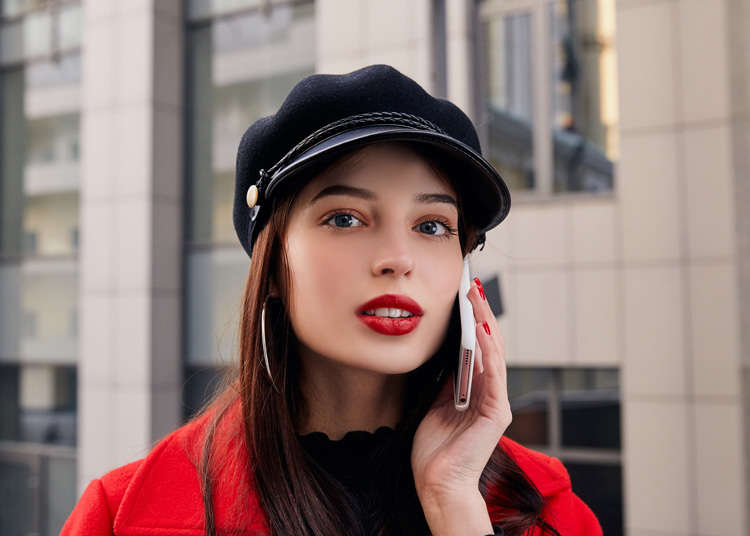
Studying abroad is always an adventure, especially if you’re in a country that is vastly different from your own. According to a survey from 2016, Japanese students have named the United States as the number one country they’d like to study in. But what about the other way around?
We talked to an American woman who is currently in her fourth year of studying popular culture at a Japanese university about her life in Japan – and the things that stood out to her. Brace for an intriguing insider look into the daily life in Japan, its good sides and its bad!
(The following article is based on the interview and opinion of one person and their experiences.)
1. “Why is this sweet?” – the Omelet Shock
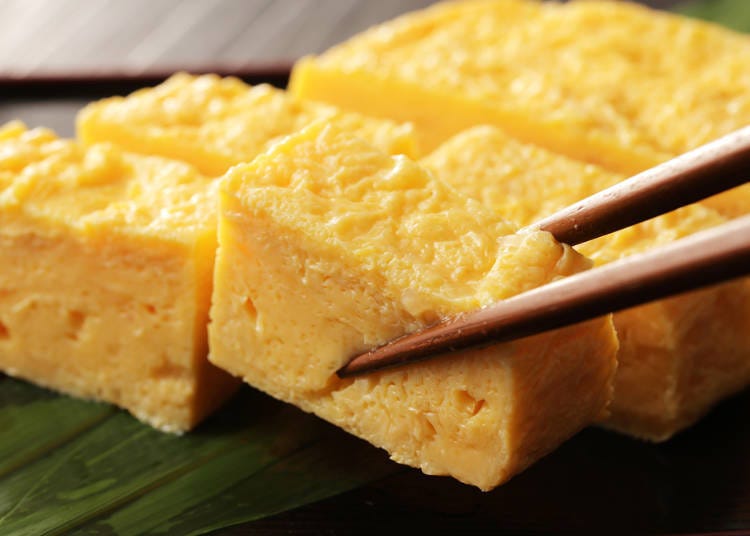
“I love omelets and was really looking forward to Japan’s take on eggs. But when I had my first bite, I was shocked by the sweetness! In the States, no one would think of putting sugar in an omelet, so that really struck me. Unfortunately, I really don’t like Japan’s sweet omelets.”
Called “tamagoyaki” in Japanese, little bits of this omelet are a core part of bento lunch boxes for students of all ages. Its characteristics are fluffiness and yes, sweetness. There’s another egg dish, however, called “dashi maki-tamago” that isn’t seasoned with sugar but with broth instead and she told us that she likes this version a lot.
Nonetheless, our egg-loving student tried to make tamagoyaki, Japanese omelet, herself. There are numerous recipes and ways of making and seasoning the classic dish, so even if you’re not a fan of sweet eggs, don’t shy away from trying it!
By the way, there are other reasons why households all around Japan put sugar in omelet. The gentle sweetness matches other dishes that are usually part of bento boxes and it is also said to help with the omelet’s shelf life.
2. “A bit of tan is a bad thing?” – the Parasol Shock
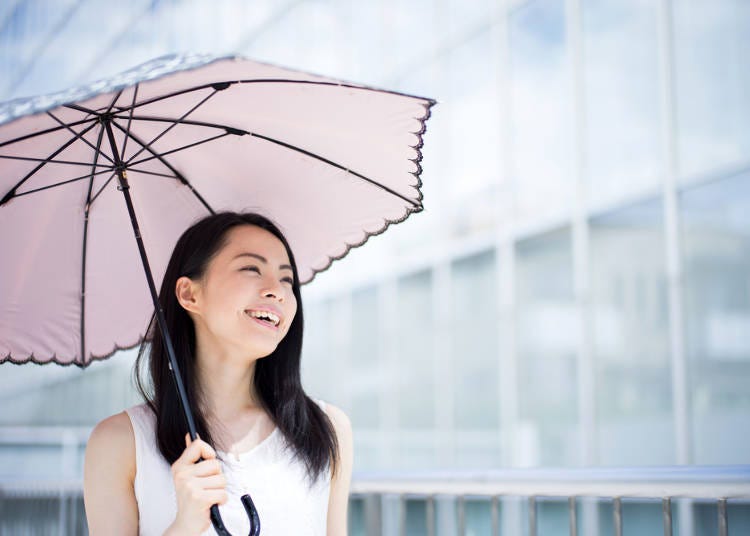
“In the States, people generally say ‘I want to get tanned!’ In Japan, however, I see so many folks with a parasol, apparently worried about their skin. I haven’t seen a single shop selling parasols in the US, to be honest.”
Certainly, media and cosmetic brands in Japan tend to talk a lot about UV protection in relation to attain “beautiful skin.” Japanese people, on the other hand, wonder: are people with a light skin tone not worried about the negative impact of UV rays?
“It’s not that I don’t care about risks like skin cancer at all, but... being too pale always makes one look kind of sick. A bit of tan usually gives off a much healthier impression. When I visit the States, people tend to comment things like ‘You’re so pale, are you ok?’”
The different standards of what beautiful skin is – pale for one person, beautiful for the next – might be one of the most obvious cultural differences.
3. “It’s in every dish...” – The Mayonnaise Shock

“Why is mayonnaise on so many Japanese dishes? I don’t like mayonnaise much, so I am having a bit of a hard time with that.” Some might have the image that the United States itself is relying on mayonnaise a lot, so this statement may come as a surprise.
She further explained that Japan tends to put mayonnaise on a large variety of dishes, including hamburgers, pizza, and even salad. In the US, mayonnaise can be found on certain burgers, but it is not a common ingredient at all. As for mayonnaise on pizza – that seems to be a uniquely Japanese quirk.
Speaking of mayonnaise: did you know that there is a difference between mayonnaise in Japan and the rest of the world? Japanese mayonnaise is the “egg-yolk type,” using only the yolk of the egg instead of the whole egg, like the rest of the world tends to make the popular seasoning. This leads to Japanese mayonnaise being both milder and richer, said to be perfect to accentuate certain flavors.
4. “Expensive but amazing!" – The Mechanical Pencil Surprise

“I am still using the mechanical pencil that bought when I first came to Japan seven years ago.” A Japanese person just shrugs at a statement like that. No one, not even the interviewer or our Japanese editorial staff, ever remembers a mechanical pencil breaking.
“When I was a student in America, the pen was done for after about a month”, she quips but also mentions that mechanical pencils cost twice more in Japan. We’d like to think that the pen broke because she studied so hard, but apparently, there are many cases in which the internal mechanism of the pen stops working properly.
Generally speaking, Japan seems to be enthusiastic about stationery, skillfully combining functionality and design. In recent years, stationery fans from all around the world have praised products from Japan for both performance and style. Some of the best-sellers are pens, sticky notes, and masking tape, of course. Believe it or not, but stationery stores are actually must-see spots when in Japan!
5. “Is there an epidemic?” – the Surgical Mask Shock

“When I first came to Japan, I genuinely thought that there was some kind of epidemic happening! So many people were walking around with surgical masks. In the States, you usually only see those in a hospital and I don’t know of any shop that just sells them like that.”
Sure enough, at this point, the surgical mask enjoys the status of both daily necessity and fashion accessory for many Japanese people. Especially during winter and hay fever season, a lot of people couldn’t do without their masks. The thought behind them is to not only prevent infection or pollen from entering your system but also to keep others safe from your own germs.
This kind of awareness has taken hold in the West as well. An indicator for that is the fairly recent emphasis on covering your nose and mouth not with your palm but with your elbow when coughing or sneezing. Because we tend to touch a lot of things with our hands, germs and bacteria spread a lot less when they land on elbows.
6. “Do I really have to call them over?” – The “Sumimasen!” Shock at Restaurants

“I feel like calling over staff at a restaurant does require a deal of courage. I usually just look at them intently and wait for them to notice it.” In Japan, it’s common to call staff over with a hearty “Sumimasen!” meaning “Excuse me!” For Japanese people, who often think of Americans of outgoing and assertive, being uncomfortable with calling staff will come as a surprise.
This really is a cultural difference, isn’t it? At restaurants in the States and many other Western cultures, it is expected of the staff to read subtle clues from guests and approach them proactively. “I don’t know, to me it always feels like I am implying that the staff isn’t doing their job properly when I call them over. It seems rude.”
In Japan, however, restaurant staff won’t bother you unless you call them with “Sumimasen!” Some places even have a button installed to call someone without words.
7. “Donmai? What does that even mean?” – The Loan Words Shock

“Whenever something unpleasant happens, a lot of people try to cheer me up by saying ‘Donmai!’ At first, I had absolutely no clue what that means. At some point, I realized that it’s an abbreviation of the English ‘Don’t mind!’ I would have never guessed that.”
“When I encounter katakana [the characters used to write words with a foreign origin], I look at them and think ‘I guess that is English...?’ But really, I often have no idea what the word means. An example of that is the Japanese word ‘arubaito,’ written in katakana. It means part-time and actually isn’t English at all but comes from a German word.”
Called “wasei eigo,” ("Japanese English") these loan words are confusing for a lot of English speakers, while a lot of Japanese people tend to have the impression that those words are easy to understand.
By the way: the aforementioned “Donmai!” may come from “Don’t mind,” but its actual meaning is a lot closer to “Don’t worry about it.” It comes as no surprise that these nuances can be confusing!
8. “Did you just say that my face is big?” – The Comments about Appearance Shock

“I feel like many Japanese people care a lot about appearance and tend to make it a focus, saying things like “You really gained a lot of weight!” That seems to be perfectly fine in Japan, but for me, it still seems very rude. I would not think of saying that in the States!”
Even when asking Japanese people about this, this seems to be a fact that can hardly be denied. Even our editorial staff can tell stories of junior high boys running around and calling others “Ugly, ugly, ugly!” Sometimes, this may come from a place of affection – but still, it never feels good, does it.
One of the weirdest things, she says, is to get comments about the size of one’s face. “I had no idea what to make of the statement that my face is big. No one ever commented on the size of my face before I came to Japan.” She says that she was aware of being complimented on a small face meant but had no clue what to think of a big face.
Japanese fashion magazines and the likes tend to praise small facial features, strongly influencing the cultural perception of beauty. Her telling this story made our Japanese staff genuinely ponder about maybe losing sight of things that are more important than looks too often.
9. “I can go to the hospital even for a cold!" – The Health Care Surprise

“Medical expenses are really high in the States, so I rarely go to the hospital or doctor. Except for a visit to the dentist, I don’t even do a yearly check.” In the States, common ailments such as a sore throat or a cold are handled with over-the-counter medicine, not a visit to the doctor.
This is hard to understand for Japanese people who enjoy a universal health care insurance system. “What about a bone fracture?”, we ask our student. “Sometimes, people don’t go to the hospital for that either. My mom, for example,” she recalls laughingly. She tells us that her mom broke a finger and didn’t go to the hospital, letting the finger heal on its own.
10. “Are these real people?” – The Idol Shock
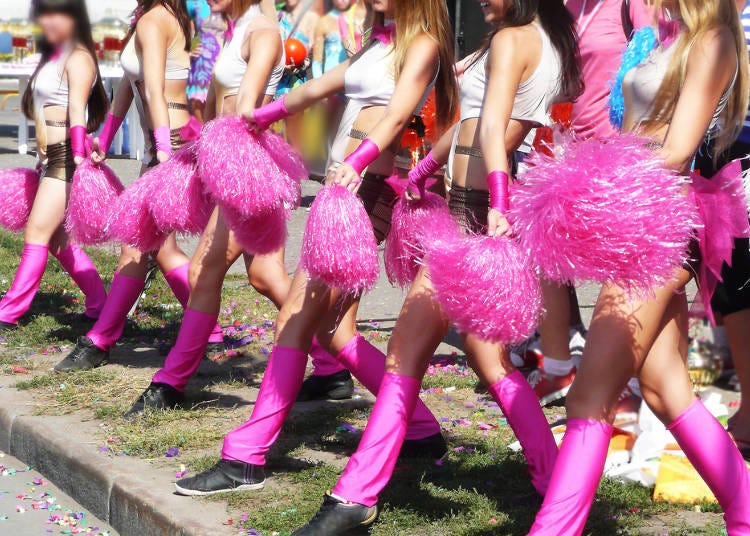
Japan’s all-female pop groups, also called idol groups, have become rather famous all around the globe – for various reasons. “I genuinely thought that they’re androids or something at the beginning.” Being asked if she doesn’t find these idol groups cute, the main feeling that Japanese fans share for the groups, our American student simply says: “No. It’s uncanny.” That’s because the members of these pop groups tend to wear the same clothes, like a uniform, share a similar hairstyle, and even the makeup often is the same.
She will start to look for a job in Japan soon and it’s common that job hunters wear a certain kind of suit for that, as well – kind of like a uniform. “I’m not a fan of that,” she admits, but follows up with: “However, I think it also helps to focus on personality instead of looks!”
This made our editors wonder if that way of thinking isn’t something that a lot of Japanese people share. In any case, it’s an interesting point because that kind of “everyone wears the same” culture cannot be found in the States, at least not to this degree. Certainly, it helps to put the focus on personality!
Life as a student in Japan certainly is full of surprises, especially when you’re from a vastly different culture. Talking about shocks and surprises with someone who is living with and in both cultures really puts a lot of things in perspective, one way or another! It also shows that, yes, people and cultures may be different, but mutual curiosity, understanding, and openness is always the key!
Photo credit (main image): Mahathir Mohd Yasin / Shutterstock.com
- Area
- Category
*Prices and options mentioned are subject to change.
*Unless stated otherwise, all prices include tax.
Popular Tours & Activitiess
Recommended places for you
-

Naritasan Shinshoji Temple
Temples
Narita
-

Ueno Zoo (Ueno Zoological Gardens)
Zoos, Aquariums & Botanical Gardens
Ueno
-

Ameyoko Shopping Street
Old Towns (Shitamachi)
Ueno
-

Shibuya Crossing
Downtown
Shibuya
-
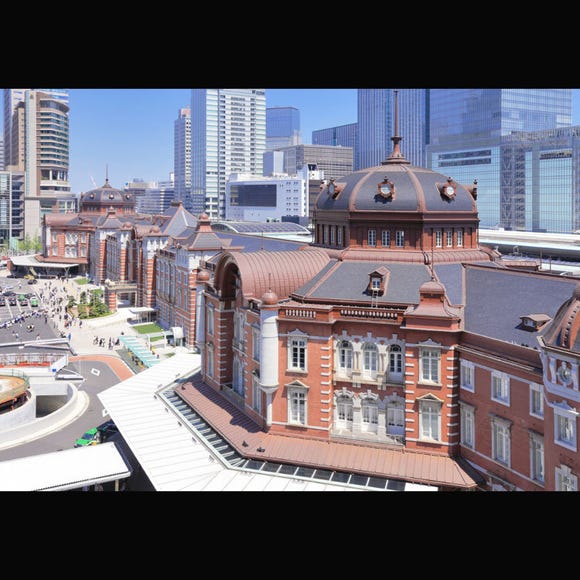
The Tokyo Station Marunouchi Building
Landmarks
Tokyo Station
-

Tokyo Metropolitan Government
Landmarks
Shinjuku
-

Where to Buy a Japanese Kitchen Knife? Why Travelers Choose MUSASHI JAPAN's 14 Stores in Tokyo, Kyoto, and Nara
by: Guest Contributor
-

Top 3 OSHI MAPs for the Best Matcha and Sweets in Tokyo
by: Guest Contributor
-
Ad

5 Recommended Wagyu Yakiniku Restaurants in Tokyo: Signature Dishes, Premium Beef, and Secret Sauces
-

Farewell, Heavy Suitcases! Keisei Ueno’s New Service Makes Your Last Day in Tokyo Totally Hands-Free
by: Guest Contributor
-

PokéPark KANTO Is Finally Open! Tokyo's New Pokémon World Starts Before You Even Arrive (2026)
by: Guest Contributor
-
Ad

What Makes Japanese Yakiniku So Darn Good? Guide to Cuts, Heat, and Wagyu Know-How
-

'In the elevator...' Reasons why a British person was shocked when they visited Japan
-

Legacy of Tradition: Discover 5 of Nihonbashi's Oldest Shops with Over 100 Years of History
-

6 Fun Things to Do at Tokyo's World-Famous Tsukiji Outer Market!
-

6 Surprisingly Cheap Things in Japan
-

Under The Tracks: Introducing 5 of Tokyo's Hot New Trendy Spots!
-

Ikebukuro Station Area Guide: Top 15 Spots When You Escape the Station's Maze!
- #best ramen tokyo
- #what to buy in ameyoko
- #what to bring to japan
- #new years in tokyo
- #best izakaya shinjuku
- #things to do tokyo
- #japanese nail trends
- #what to do in odaiba
- #onsen tattoo friendly tokyo
- #daiso
- #best sushi ginza
- #japanese convenience store snacks
- #best yakiniku shibuya
- #japanese fashion culture
- #best japanese soft drinks












